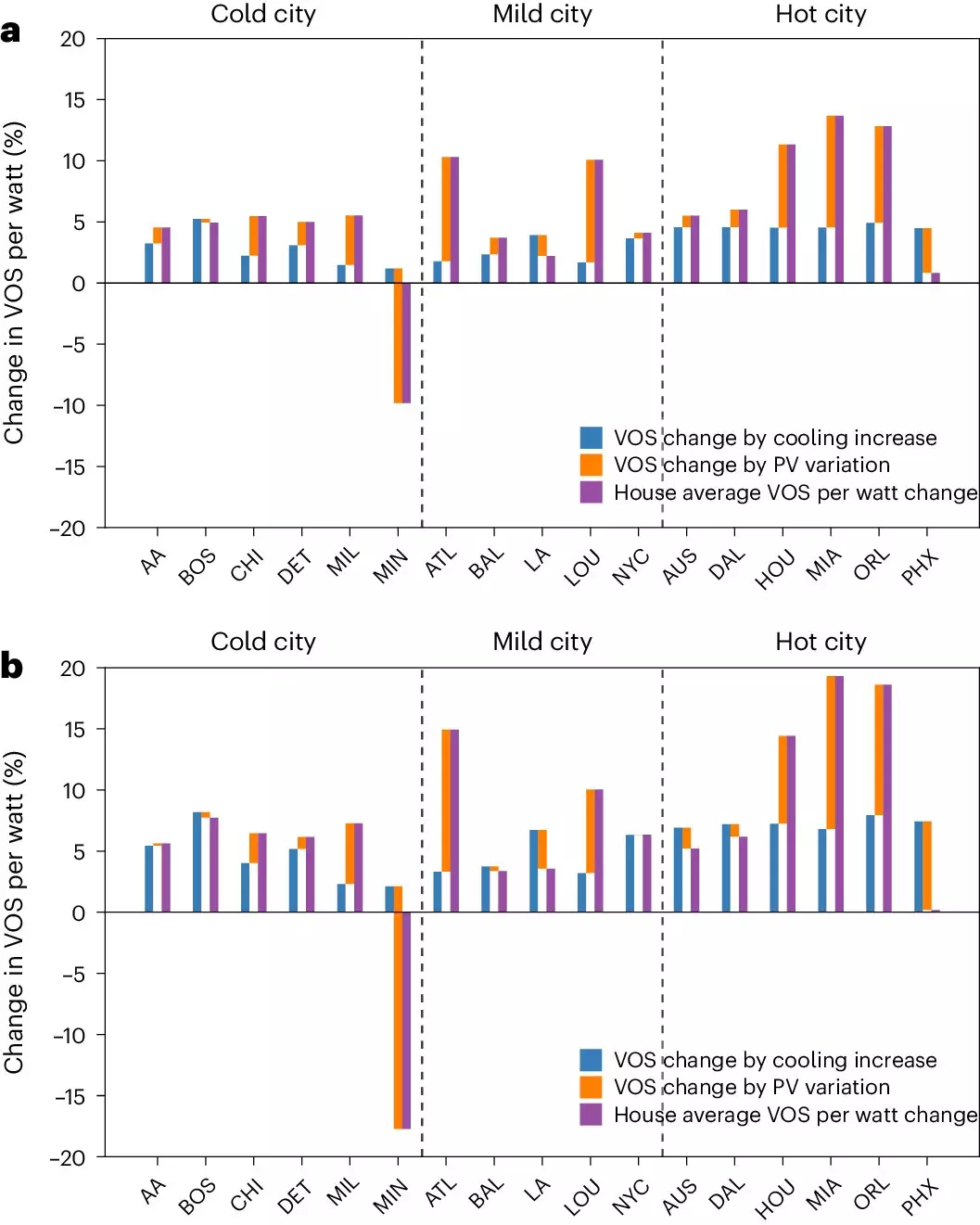Residential rooftop solar panels are set to gain increasing value due to climate change in the coming years. A new study led by the University of Michigan indicates that by the end of the century, the value of solar energy could rise up to 19%. The study looks at the financial benefits of solar panels, which include electricity bill savings and revenues from selling excess power to the grid, minus the initial installation costs. The findings suggest that households across the United States could potentially earn hundreds of dollars annually from residential solar installations.
One of the main drivers of the increased value of rooftop solar panels is the growing demand for residential air-conditioning as the climate warms. The study also highlights the importance of considering future weather conditions when installing solar systems, as they will play a significant role in determining the overall value. Rising temperatures are expected to impact the efficiency of solar panels, as they perform best in cool, sunny weather. While some locations may experience decreased panel efficiency due to higher temperatures and cloud cover, the overall financial gains from rooftop solar are expected to outweigh these challenges.
The study analyzed data from 2,000 households in 17 U.S. cities and projected future scenarios using a moderate climate-warming model. It was found that cities like Miami would see a significant increase in the value of rooftop solar, while cities like Minneapolis might experience a decrease. Factors such as air temperature and cloud cover will impact the performance of solar panels, and cities will vary in terms of their suitability for solar energy generation. Despite these variations, increased cooling demand across all locations is expected to result in financial gains for rooftop solar owners.
While future financial gains from rooftop solar will predominantly benefit households with the means to install solar panels, there are programs in place to improve accessibility. These initiatives aim to make solar energy more affordable for lower-income individuals and provide opportunities for community-wide solar projects. Additionally, government-led initiatives to install solar panels on public buildings can help cover costs and extend the benefits of solar energy to a wider population. By increasing accessibility to solar energy, more people can take advantage of the anticipated financial gains.
The future value of residential rooftop solar panels is set to increase due to climate change. Factors such as rising temperatures and increased cooling demand will contribute to the financial benefits of solar energy. While there are challenges related to solar panel performance in changing weather conditions, the overall outlook for rooftop solar remains positive. By considering future climates and promoting accessibility to solar energy, households across the United States can make informed decisions about installing solar panels and reap the financial rewards in the long run.


Leave a Reply